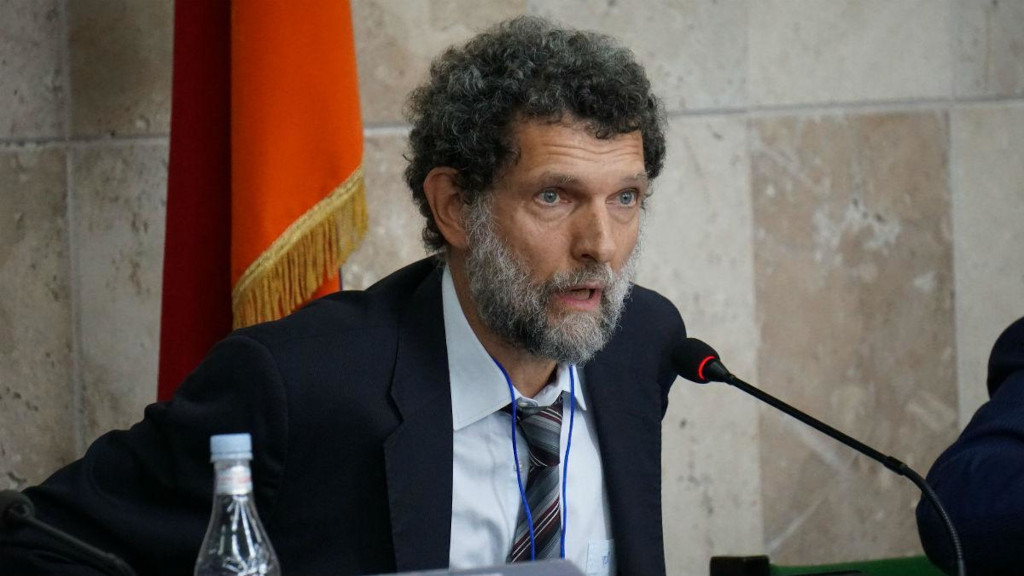Attorneys for businessman and philanthropist Osman Kavala have stated, in response to a prosecutor’s final opinion in the Gezi Park case, that espionage charges were used merely as a legal argument for the continuation of Kavala’s detention.
The lawyers’ statement was issued after the prosecutor in the Gezi Park trial, in which 17 defendants including Kavala face “coup” and “espionage” charges, demanded an aggravated life sentence for Kavala last week on charges of “attempting to overthrow the government of the Republic of Turkey.”
The İstanbul 30th High Criminal Court acquitted Kavala, who had been behind bars since October 18, 2017, and other defendants of charges linked to the anti-government Gezi Park protests of 2013, saying there was “not enough concrete evidence” against them, in mid-February, 2020.
However, the İstanbul Regional Court’s 3rd Criminal Chamber, a higher court, overturned the ruling in January 2021.
Before the ruling was reversed, Kavala had already been rearrested –- on the same day of his acquittal –- on charges related to a 2016 abortive putsch in Turkey in a move described by his lawyers as a tactic to circumvent a European Court of Human Rights (ECtHR) ruling, which said on December 10, 2019 that the long pre-trial detention of Kavala was a violation of his rights.
Statement from Osman Kavala’s lawyers in response to prosecutor’s final opinion submitted to court last week:
“It is openly admitted that the charge of espionage has been used only as a legal argument for the continuation of detention.”
https://t.co/Lo1Lpgn1Tc pic.twitter.com/Z4sqnt93yq
— Expression Interrupted (@ExInt24) March 8, 2022
The attorneys said in a written statement on Tuesday that the “coup” and “espionage” charges, for which Kavala had been kept in detention for two years, were “left without subject” and that it was openly admitted that the charge of espionage had been only used as “a legal argument for the continuation of detention.”
The attorneys also said the binding judgment of the ECtHR in 2019 was “clearly disregarded” and that decisions and norms regarding international criminal law were “persistently deemed null and void” in Kavala’s case.
The judgment had found that his detention for allegedly directing and financing the Gezi Park protests of 2013 and for alleged involvement in the failed coup of July 2016 was in pursuance of an “ulterior motive,” that of silencing him as a human rights defender.
The protests in 2013 erupted over government plans to demolish Gezi Park in Taksim. They quickly turned into mass anti-government demonstrations that were violently suppressed by the government, leading to the death of 11 protestors due to the use of disproportionate force by the police.
The Council of Europe’s Committee of Ministers on Feb. 1 decided to take action against Turkey due to the philanthropist’s continued imprisonment and ordered that the case be submitted to the ECtHR for review, officially beginning an infringement procedure against Turkey.
Kavala has become a symbol to his supporters of the sweeping crackdown President Recep Tayyip Erdoğan unleashed after the failed coup.
In October 2021 the ambassadors of 10 countries, including the US, Germany, and France, demanded Kavala’s immediate release in line with the 2019 ECtHR ruling. President Erdoğan threatened to expel the envoys before backing down.



